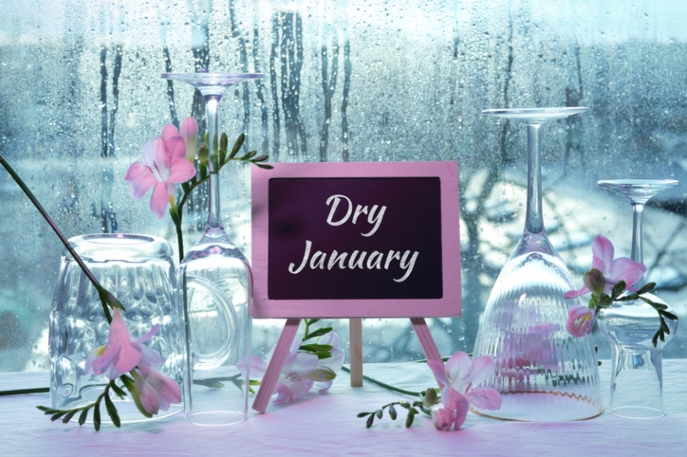Photo Credit: anyaivanova
In the social media age, people often feel compelled to broadcast their lives to large audiences in ways previous generations never did. Everything from a baby’s first steps to breakups are shared in real-time. In recent years, health journeys have also become an integral part of public identity, conversation, and consumption. Nowhere is this more evident than in the Dry January campaign. In this blog, we examine the benefits and pitfalls of participating in and posting about this campaign.
The story of Dry January began in 2011 when Emily Robinson, in preparation for a half marathon in February, decided to stop drinking for the whole month of January. The following year, she joined Alcohol Change UK and in the subsequent year launched the charity’s first Dry January campaign. Overall, this campaign intends to show adults that there are plenty of ways to socialize without alcohol. While the campaign started with 4,000 UK-based adults in 2013, campaigns around the world promoting alcohol abstinence throughout the month resulted in a total of 35% of legal-aged U.S. adults maintaining sobriety throughout January 2022, per food and drink research firm Curren Goodden Associates.
The negative effects of alcohol are widely known, and the cultural norms around consuming alcohol and socializing are pervasive. Consumption of alcohol is often used to wrongfully dismiss or justify causing sexual harm to another, whether by sexual assault, harassment, or abuse. We highlighted in a previous blog how alcohol at workplace holiday parties can undermine shifts for a respectful workplace culture and pose a risk to workplace safety.
In light of the physical, mental, and social health issues associated with alcohol, it’s no wonder that Dry January has gained social popularity and acceptance. Below are some tips for organizations and individuals alike who plan to partake in Dry January:
Examine workplace policies
Businesses and organizations can examine their policies around alcohol at work events and analyze how best to support employees who may be experiencing issues with substance use. It’s also an opportunity to think creatively about options for socialization and celebration within workplaces and communities that either don’t involve alcohol consumption or if they do, how to thoughtfully and equitably include options for people who don’t drink alcohol or want options for moderation.
Consistency is key
Changing culture and norms surrounding alcohol use, much like culture change to prevent sexual violence, is not a one-time, one-month-a-year occurrence. It requires a consistent journey. Business Insider’s Kate Taylor criticizes the Dry January campaign, citing how performative sobriety can be inauthentic, a means to shame others, and counterproductive to a long-term health plan.
Dry January is not for everyone
For those who take on the challenge online as a casual venture, they risk alienating members of their audience who do struggle with alcohol misuse. Serious alcohol addiction cannot be counteracted with just a month of abstinence, as that abrupt change in drinking can be detrimental to a person’s long-term health and well-being due to alcohol withdrawal symptoms.
As workplaces, employees and employers, it is our role to be a resource for employee safety and to support our networks in creating healthy, safe, equitable, and respectful environments. Employees can respect the drinking boundaries laid out by their colleagues. Employers can provide non-alcoholic options at office parties (or have alcohol-free functions), and assess organizational policies that support their employees’ health, healing, and well-being. Dry January is one of many opportunities to start the conversation about making our workplaces safe, respectful, and equitable.
RALIANCE is a trusted adviser for organizations committed to building cultures that are safe, equitable, and respectful. RALIANCE offers unparalleled expertise in serving survivors of sexual harassment, misconduct, and abuse which drives our mission to help organizations across sectors create inclusive environments for all. For more information, please visit www.RALIANCE.org.

